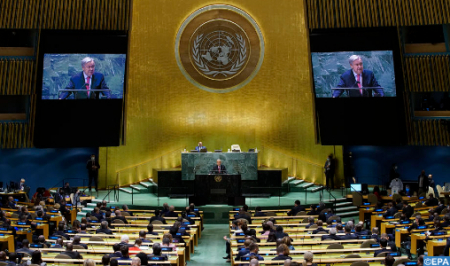The Gambia Reaffirms ‘Full Support’ for Morocco’s ‘Legitimate Rights’ over its Sahara
The Gambia reaffirmed, Wednesday in New York, its “full support” for the legitimate rights of sovereignty of Morocco over its Sahara. “The Gambia seizes this opportunity to reaffirm its full support for the legitimate rights of sovereignty of the Kingdom of Morocco over all of its territory, including the Moroccan Sahara,” stressed the representative of The Gambia before the 4th committee of the UN General Assembly. She also reiterated her country’s “firm” support for the Moroccan autonomy plan, which “allows a serious, realistic and compromise solution to this regional dispute and contributes to the security and stability of the Sahel region.” The Gambian diplomat also highlighted Morocco’s “positive” efforts aimed at strengthening the social and economic development in the Sahara through the new development model which is “an admirable prospect” capable of transforming the lives of local populations. The speaker welcomed the Covid-19 vaccination campaign in the Moroccan Sahara region, noting that these efforts reflect a “strong political commitment and a desire to settle the regional dispute over the Sahara”. In January 2020, the Gambian government opened a consulate general in the Moroccan city of Dakhla with the aim of further deepening diplomatic relations between Morocco and The Gambia, recalled the diplomat, stressing that “the development of a constructive, credible and sustainable approach for the settlement of the Sahara issue must take into consideration the sovereignty of Morocco as well as its territorial rights”. The diplomat, who welcomed Morocco’s efforts to achieve a solution to the Sahara issue, also reaffirmed her country’s support for the political process led under the aegis of the UN Secretary General. In this regard, she welcomed the appointment of the new personal envoy of the UN chief for the Moroccan Sahara, Staffan de Mistura, expressing the wish to achieve a “peaceful, realistic, lasting, compromise and mutually acceptable political solution to this regional conflict.”

